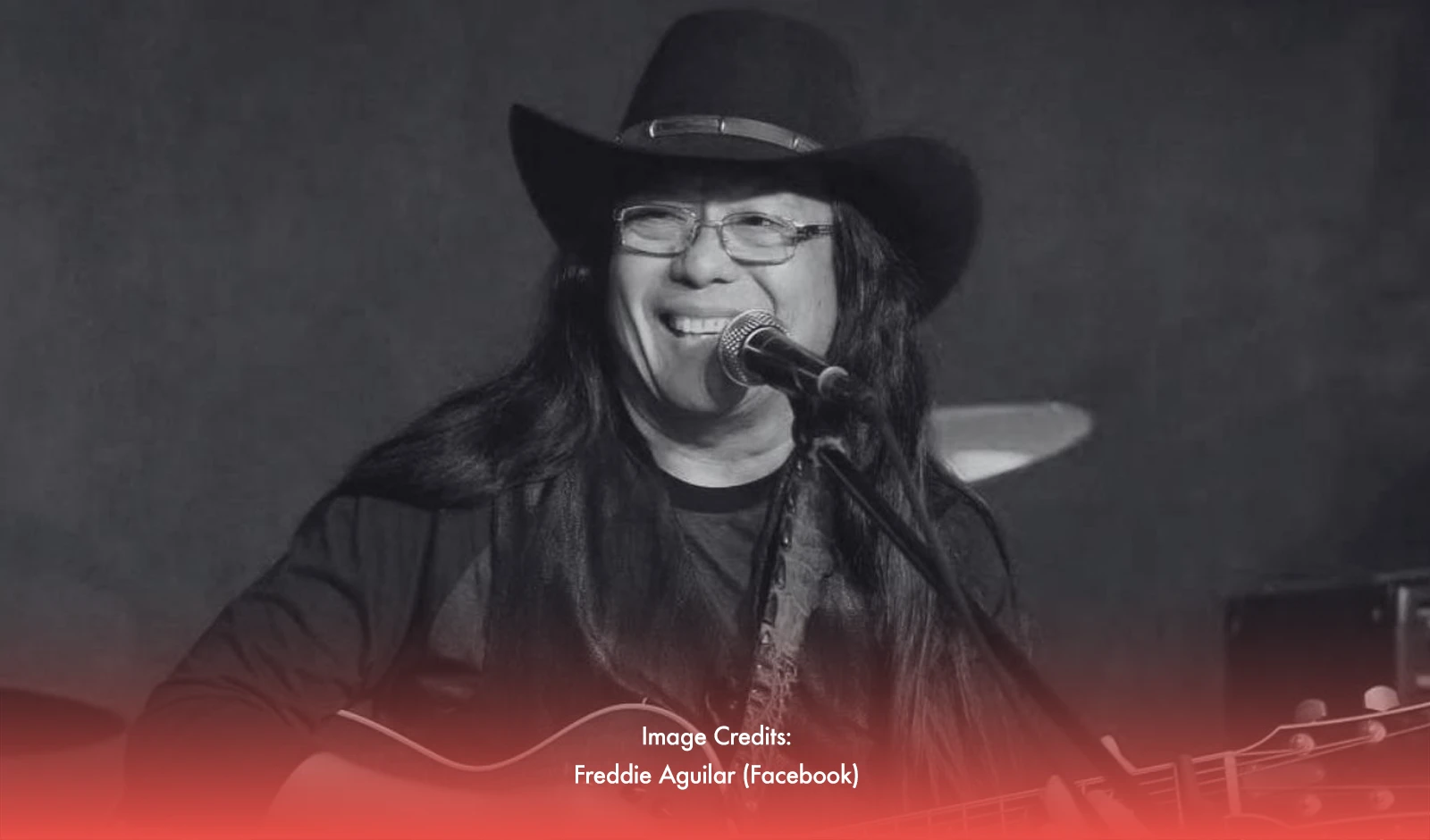Freddie Aguilar, the Filipino singer-songwriter best known for his global hit Anak, died on May 27, 2025, at the age of 72. His wife, Jovie Albao, confirmed his passing at the Philippine Heart Center in Quezon City after a long illness involving kidney complications and pneumonia.
He stood out as a prominent figure in Philippine music, gaining recognition both locally and internationally for his distinct voice and socially conscious songwriting.
Early Life and Musical Beginnings
Born on February 5, 1953, in Cagayan, Northern Philippines, he began his music career in the 1970s. He first performed with local bands before launching a solo career focused on Filipino folk music.
His style combined traditional folk sounds with contemporary storytelling, often reflecting the struggles and hopes of ordinary Filipinos. Due to this, his works resonated strongly, especially during periods of political unrest and social change in the country.
From the Philippines to the World Stage
In 1977, he released Anak. The song quickly captured international attention. Record labels distributed it in 59 countries. Artists translated it into 26 languages and recorded more than 100 versions worldwide. Anak sold approximately 33 million copies, an unprecedented figure for a Filipino recording.
The song’s lyrics, which tell the story of a parent’s pain and a child’s regret, struck a universal chord. Its powerful message transcended cultural boundaries, connecting with audiences from Asia to the Americas and Europe. Decades after its release, Anak maintained its influence in popular culture. In 2015, filmmakers selected the song as the theme for Gangnam Blues, a South Korean action film, introducing it to a new generation of listeners.
Billboard Magazine reported that Anak topped global charts for two weeks in the 1980s, a rare achievement for a non-English song. This global success marked a milestone for Filipino music, proving that local artistry could compete on the world stage. As of 2006, Anak remained the highest-selling Filipino song ever, a testament to its enduring appeal and impact.
Legacy
His passing marks the end of an era for Philippine music. He did not just produce songs — he gave voice to the Filipino spirit: its struggles, hopes, and identity. Anak remains more than a hit song; it is a cultural symbol that continues to inspire artists and listeners worldwide.
His influence shaped generations of Filipino musicians who see in his work a model for combining artistry with social consciousness. Beyond commercial success, his songs sparked conversations about family, social justice, and national pride during times when such dialogue was crucial.
National honors and official recognitions reflect his stature as a cultural icon. He earned distinction as the only Asian singer-songwriter to break into the Western music market with significant success. His legacy endures in the hearts of Filipinos at home and abroad, who continue to celebrate his contributions to music and culture.
His music lives on as a bridge between the Philippines and the world, reminding us of the power of song to unite people across borders and generations.
RELATED: [Remembering An OPM legend: Hajji Alejandro's Greatest Hits]








